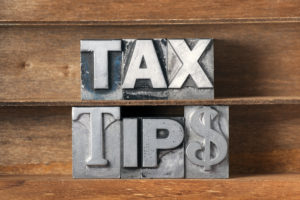Why Aren’t People Spending Their Tax Refunds?
Economists, politicians and people in general like to discuss the nation’s economy and where it stands at any given moment. There are many different points that are touched on and several aspects that are used as evidence to make important points. However, one indicator of the economy’s health that can never really be argued is consumer spending.
When spending is up the economy improves, as does the nation’s overall outlook. However, when spending is down, the economy slows and the outlook gets darker. To that end, what does it say about the economy that a lot of people are putting their 2015 tax refunds in the bank, instead of splurging on frills? It means consumers are still exercising caution and taking a wait-and-see approach.
According to the numbers, even though the average tax refund has been up 0.7 percent in 2015, about half of all taxpayers said they planned to save at least some of their refund money this year. That means they are going to be spending less. In fact, that percentage is as high as it’s been since the National Retail Association started conducting its survey 12 years ago.
Many other consumers, almost 40 percent, also said they are planning to pay off some debt when they get their refund check this year. In a separate survey by BankRate.com only 3 percent said they planned to spend all of their refund and 67 percent said they were going to use it to pay off debt.
So, while the news is good that taxpayers are getting a little more back this year, the news for the economy might not be as promising At any rate, with more money being returned to consumers, at some point it should make it back in to the economy. That means even though the boost might not come now, it could still come later.
Professional Athletes Could Be Getting a Big Tax Victory in Cleveland
Professional Athletes Could Be Getting a Big Tax Victory in Cleveland Millions of sports fans all over the country love their favorite teams and athletes. A large majority of professional athletes from all walks of the sporting world make a lot of money and are some of the highest paid individuals in the country. While…
How to Choose an Investment Advisor
How to Choose an Investment Advisor Finding a reliable source for investment advice has always been a challenge. It’s especially difficult in today’s investment environment. There’s no shortage of places to turn for advice. The shelves at the bookstores are filled with “experts” offering their perspectives on how and where to invest. The financial pages…
Here’s a 15-item checklist of low-hanging tax tips for financial advisors
Here’s a 15-item checklist of low-hanging tax tips for financial advisors It’s tempting to put April 15th behind you, but here’s how you can plan for next year: With April 15th behind us, many people put tax issues onto the back burner until they’re staring at the next deadline. Alan Olsen, managing partner at Greenstein,…
How To Stay In Control Of Your Company
How To Stay In Control Of Your Company Have you ever watched the popular ABC program Shark Tank? This “reality” show allows entrepreneurs and business owners to pitch their business ideas or products to five extremely wealthy investors who are successful entrepreneurs in their own right. The panel of “shark” investors even includes Dallas Mavericks’…



